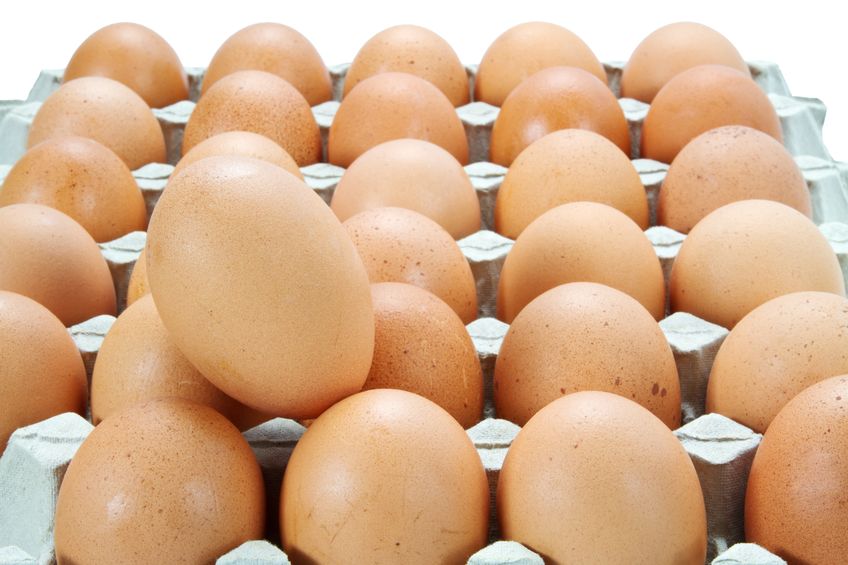
Sales of organic eggs are enjoying "double digit growth", according to the Soil Association, which recently published its annual organic market report.
Sales of organic overall increased by 4.5% last year, but organic eggs were among the stars of the organic food sector, according to Soil Association trade consultant Finn Cottle.
"Eggs are certainly one of the strongest performers in terms of how they have performed in 2019," she explained.
"The trend for both eggs and poultry is double digit growth by value. We have seen just over 12 per cent growth by value for eggs."
A combination of factors was helping to drive sales of organic eggs: "Two things are happening," Ms Cottle said, "One is that there is a change in people's diet. There was been a move towards a vegetarian or plant based diet.
"This has put eggs in a very healthy position, with a move away from red meat. And consumers who are switching to a non-meat diet are ones who are possibly pre-disposed to organic.
"They want to know where their food is from and that is good news for organic eggs," she said.
"The other thing is animal welfare. This still seems to be a strong motivator when people are buying food and organic is strong on animal welfare."
Ms Cottle added that there was also greater availability of organic eggs on supermarket shelves.
She has, in the past, criticised retailers for not doing enough to make organic eggs available. This appears to have changed.
"There are also more organic eggs available now, which makes it easier for consumers to choose them," she explained.
Free range eggs have struggled to maintain value because of continuous expansion in production, but organic eggs seem to be holding up better in terms of value than free range.
Ms Cottle said she was not aware of any prices increases, but it did seem that organic eggs were holding their price.
"The price differential between organic and other eggs can be very high but customers certainly seem to value organic.
"It is all looking very rosy at the moment."
In the report, the Soil Association highlighted greater availability of both eggs and chicken on retail shelves.
"Consumer demand for organic eggs and chicken has led to greater availability in supermarkets. Defra statistics show the number of total poultry farmed organically in the UK increased by 10% between 2017 and 2018, rising to almost 3.4 million birds.
"There were double digit increases in sales of organic eggs and organic chicken in 2019."
Overall, the United Kingdom's organic market is now worth £2.45 billion, according to the Soil Association report.
After eight years of growth, organic sales have reached their highest ever value with £200 million spent each month on organic food and drink in the UK.
The market is expected to be worth £2.5 billion a year by the end of 2020.
The report shows growth across all areas, including supermarkets, home delivery, food service and independent retail, as demand for organic continues to increase across the UK.
Clare McDermott, business development director at Soil Association Certification, said: “With the climate crisis and British farming dominating the headlines, organic is more relevant than ever as a way for shoppers looking for simple choices to reduce their environmental impact.
"2019 was another exciting year for organic and 2020 will be a tipping point where organic becomes the go-to choice for shoppers who want to have a sustainable shopping basket.
“Organic certification means people can be sure that what they are buying has been produced to the highest environmental and animal-welfare standards.
"The remarkable success of organic wine last year is proof that the demand for nature-friendly products is there, and that if retailers stock more organic, shoppers will buy it.”
The report said that eggs were amongst the highest penetration organic foods in the UK last year.
"The main organic products in supermarket baskets continue to be everyday items, where habits are established," it said.
"Highest penetration items are carrots (14 per cent), bananas (9.8 per cent), eggs (8.8 per cent), yoghurts (7.8 per cent), tea (8 per cent) and milk (5.5 per cent)."
Organic eggs are now approaching nearly 10 per cent of all eggs sold in retail in the UK, according to the report, although it still lags behind some European markets.
In Germany, organic eggs have the top organic share in their category, accounting for 12 percent of all eggs sold.
